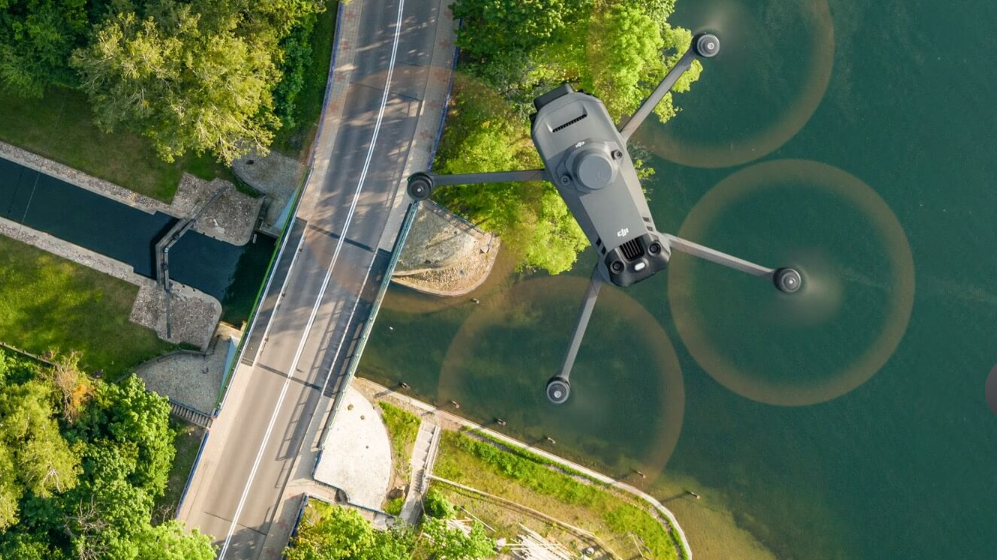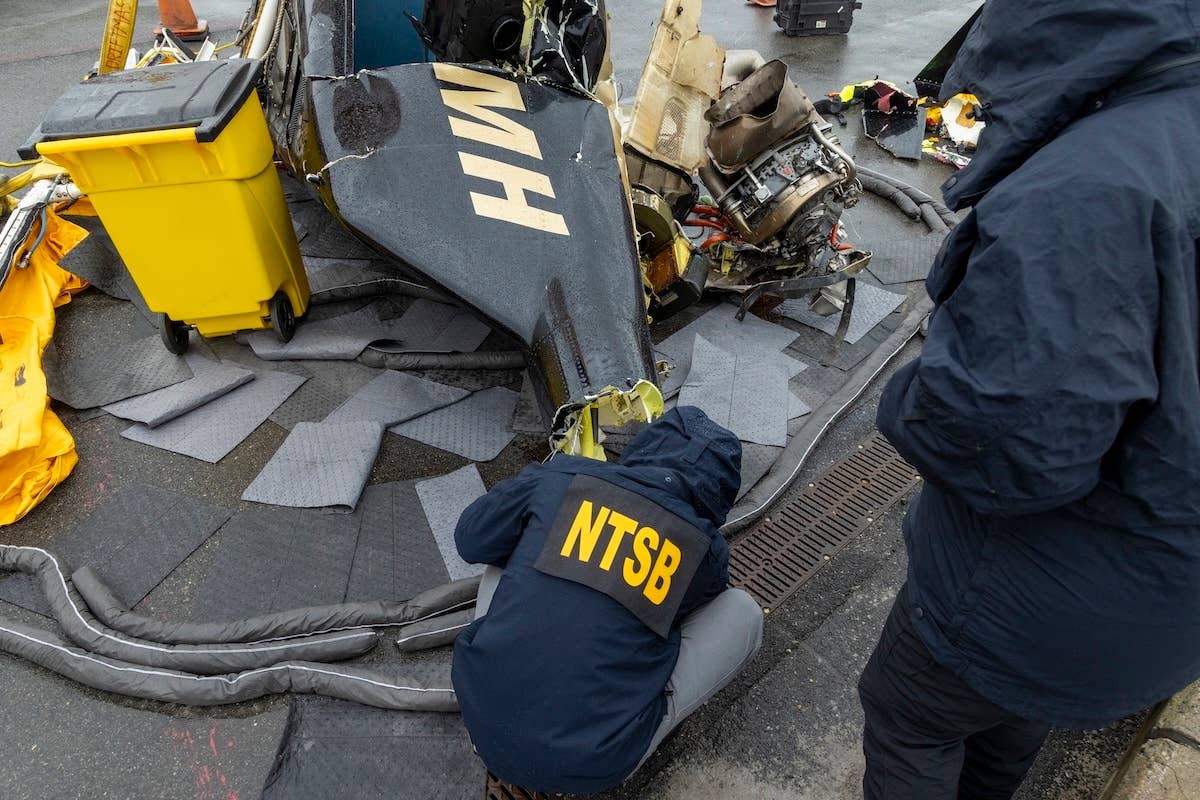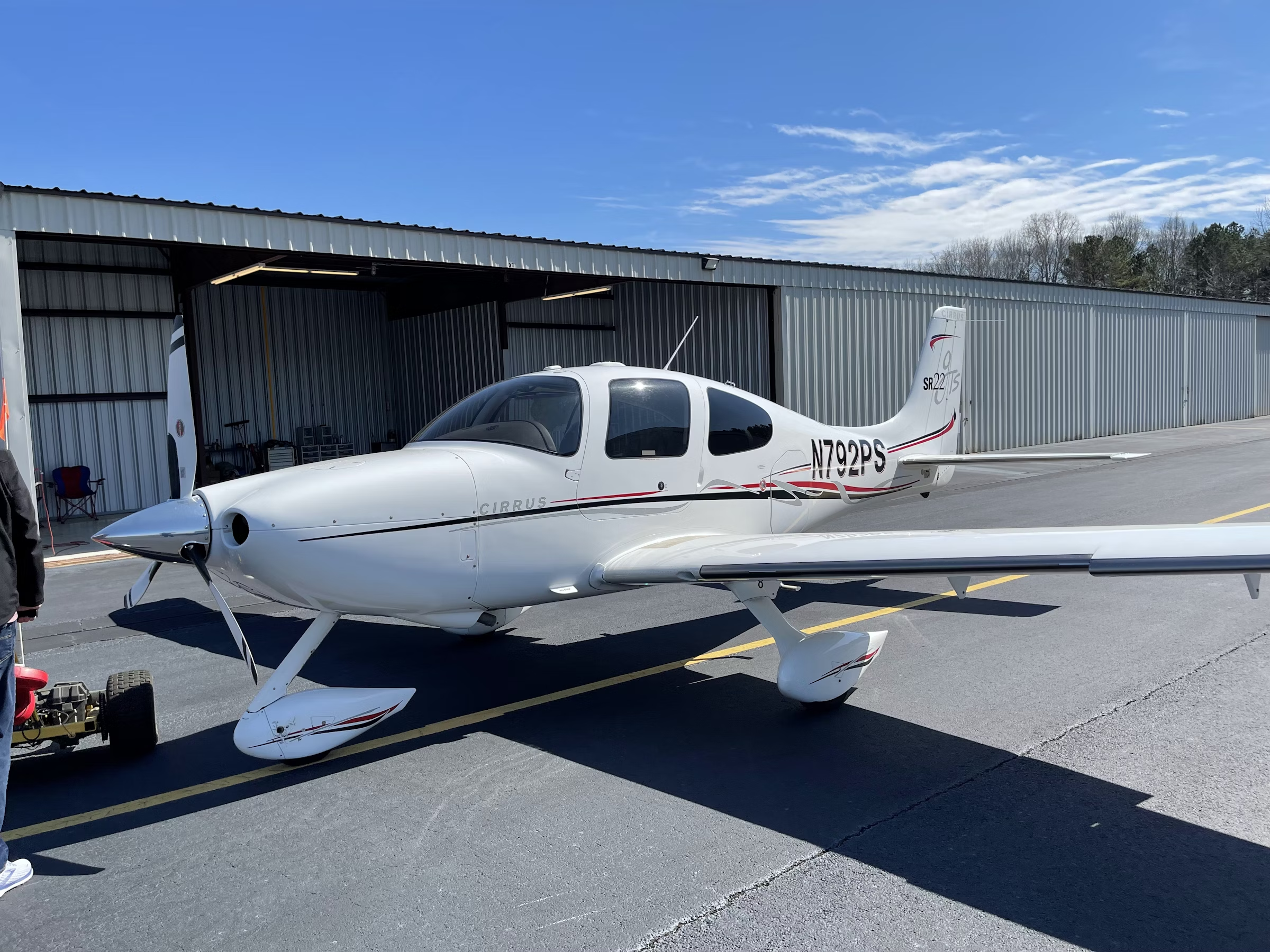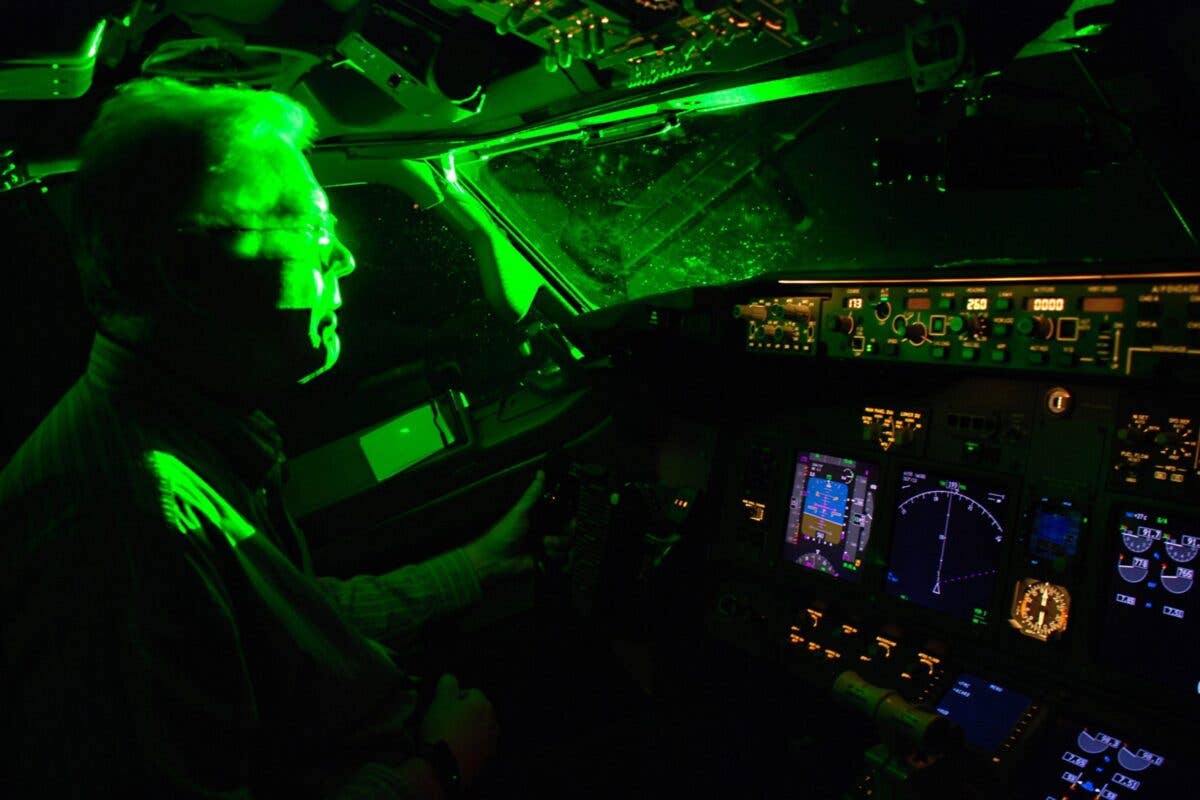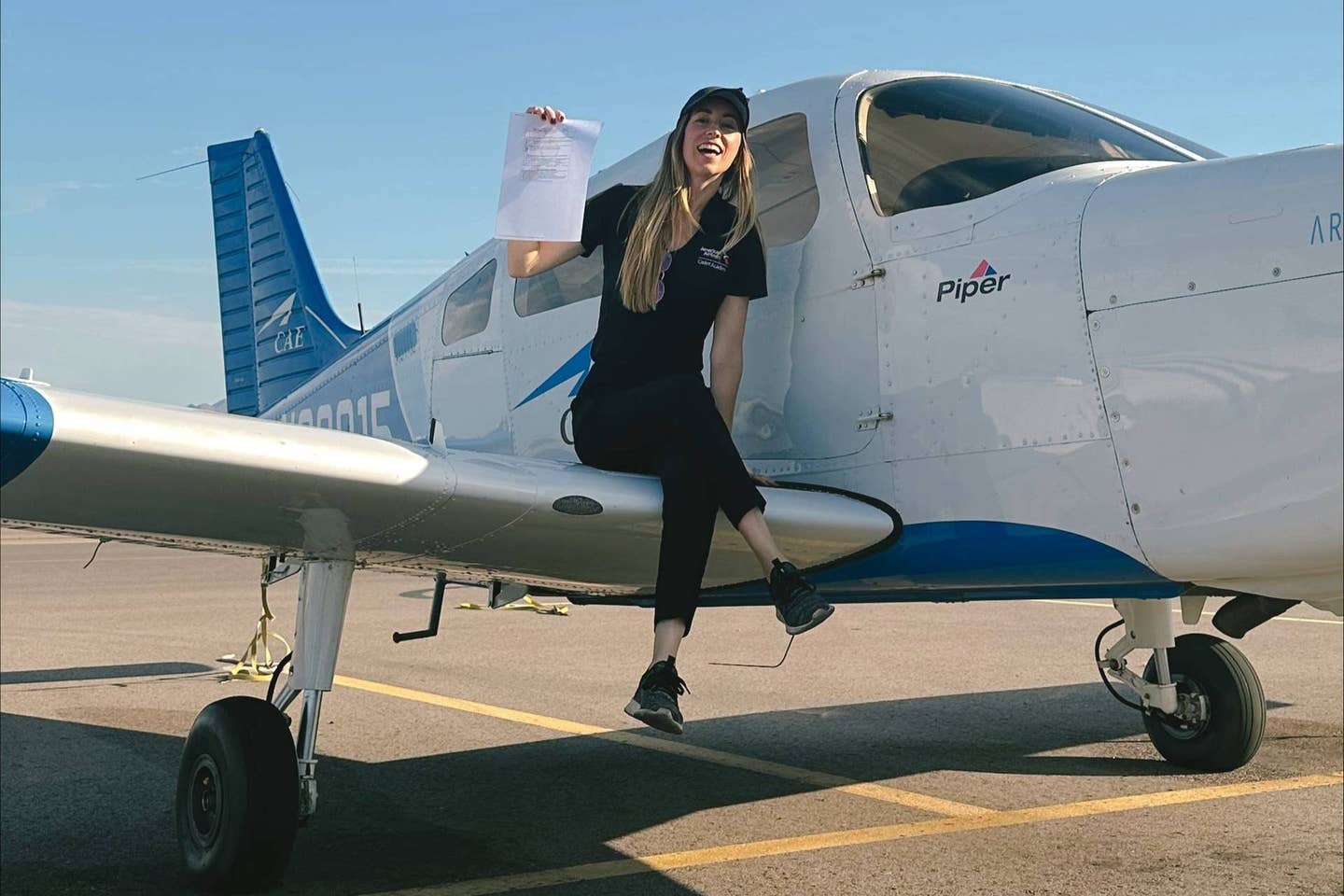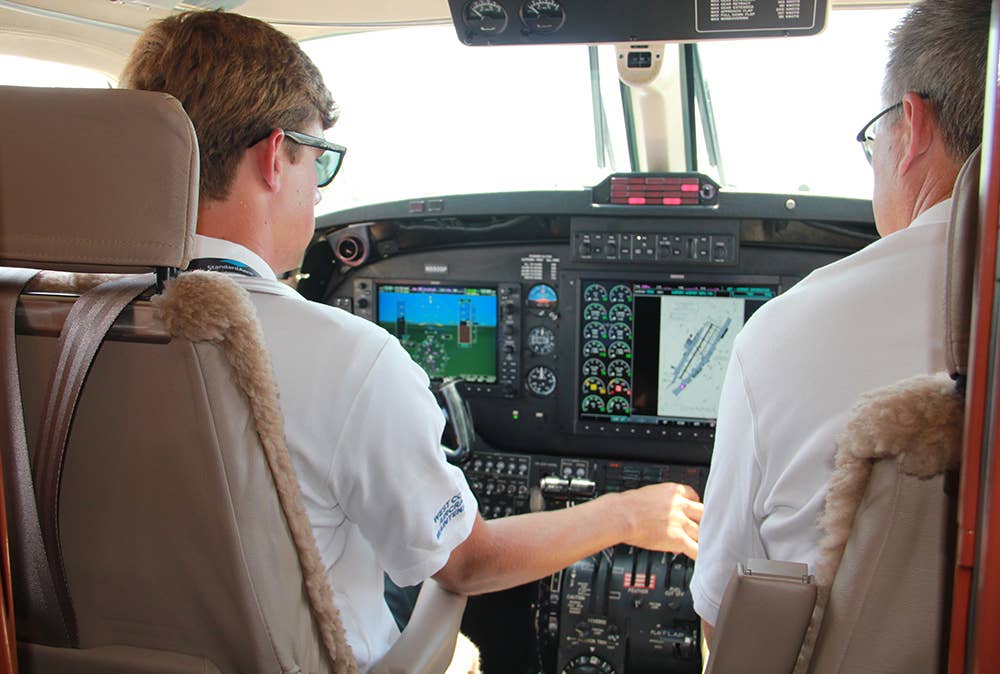Beta Technologies Will Deliver Electric Aircraft, Chargers to Air Force Base
The agreement extends the company’s three-year partnership with AFWERX Agility Prime, the innovation arm of the Air Force dedicated to vertical lift.

U.S. Air Force Major Jonathan Appleby (left) and Beta test pilot Camron Guthrie take a Beta Alia demonstrator for a test flight in March. [Courtesy: Beta Technologies]
Another week, another first for the advanced air mobility (AAM) industry.
The milestone comes from electric aircraft developer Beta Technologies, which on Thursday said it will be the first to install an electric aircraft charging station on an air force base. The site in question is Eglin Air Force Base in Florida, where Beta will deliver two charging stations—and a prototype of its newly revealed electric conventional takeoff and landing (eCTOL) design.
The purchase and installation marks an extension of Beta’s three-year partnership with AFWERX Agility Prime, the innovation arm of the U.S. Air Force dedicated to vertical lift technologies. Per the agreement, the Air Force will experiment with Beta’s charging systems and aircraft as soon as this fall.
Beta rivals Joby Aviation and Archer Aviation are also delivering electric aircraft to air force bases, though neither is providing a charging system. Joby expects to deliver the first two of nine air taxis to Edwards Air Force Base in California early next year, while Archer will deliver up to six Midnight eVTOLs to an unnamed base on an unspecified time frame.
“Charging station installation is a critical step to unleash test and experimentation with the [Department of Defense] to leverage emerging electric aviation technology as a capability for the warfighter,” said Major Anthony Zartman, Agility Prime program manager team lead. “Two charging test sites will be set up by the end of the calendar year, marking the first multimodal charging capabilities for the Air Force. Further, the charging stations will provide an opportunity to explore the utility of electric vehicle fleet modernization, as well as base and flight line support equipment to improve energy use and reduce emissions.”
The Level 3 DC fast-charger Beta will send to Eglin was designed and developed in-house. It’s capable of charging an electric aircraft in under an hour and can support the company’s own models, other company’s designs, and even ground-based electric vehicles.
The system was designed to the standard laid out by the General Aviation Manufacturers Association’s recent “Interoperability of Electric Charging Infrastructure” white paper, which was agreed upon by a large swath of the AAM industry. In January, the company’s aircraft battery completed 50-foot drop tests with the FAA.
The extension of the Agility Prime contract marks the expansion of Beta’s charging network into Florida, adding to its 13 activated sites across Vermont, Arkansas, and most recently Georgia. The company has another 55 under construction or development on the East and Gulf coasts.
“We are honored that the first-ever fixed electric aircraft charger on a Department of Defense installation is a BETA charger,” said Kyle Clark, CEO and founder of Beta. “The DOD, and specifically AFWERX’s Agility Prime team, have been invaluable partners to us for the past several years, offering deep insights that have helped us continue to progress our technology. The installation of this charger is an enabling step as the DOD looks to transition to a more sustainable fleet.”
The installation of the first charger at Eglin is expected to be completed in the fall in time for the Air Force’s contracted deployment of Beta’s Alia eCTOL. Those experiments will add to the company’s list of Air Force milestones, including earning the military’s first manned flight airworthiness approval for an electric aircraft and flying the industry’s only piloted qualitative evaluation flights with Air Force and Army test pilots.
Those tests were done with Beta’s Alia-250 electric vertical takeoff and landing (eVTOL) design, which also completed an eight-leg, six-state, cross-country flight spanning 1,219 nm from New York to Arkansas in 2022. The company primarily manufactured eVTOLs before the reveal of the eCTOL Alia variant.
That design, also known as the CX300, resembles the Alia-250 minus rotors for vertical flight. Its airframe, batteries, propulsion, and other systems will be the same as its eVTOL counterpart. So far, the eCTOL version has completed evaluation flights with FAA, Air Force, and Army test pilots, including a 386-mile jaunt from Jamestown to Plattsburgh, New York. The aircraft has covered a total distance of 22,000 miles during developmental flights.
The Alia eCTOL and eVTOL variants are expected to enter service in 2025 and 2026, respectively, and Beta is working with the FAA on certification for both. It applied for type certification for the CX300 last year.
In pursuit of those deadlines, Beta will open a full-scale production facility this fall in South Burlington, Vermont—also home to the company headquarters—where it will begin manufacturing aircraft on the production line soon after. It said new and existing customers have placed orders for the newer design, including Air New Zealand and helicopter operator Bristow Group.
Bristow is one of those existing customers, having placed a firm order for five Alia eVTOLs with an option for 50 more. Beta also has a deal with LCI for up to 125 aircraft and another 20 orders from Blade Air Mobility. But the cream of the crop is probably its agreement with UPS Flight Forward for up to 150 eVTOLs.
Per SMG Consulting’s AAM Reality Index, Beta has just under 500 total Alia orders, placing it somewhere in the middle of the pack. Its figures are comparable to Volocopter and Jaunt Air Mobility, below those of Lilium, and stronger than those of Joby or Archer.
Beta is also a unicorn with a valuation north of $1.5 billion, positioning it well for the future. The company is backed by a pair of major funding rounds: a $368M Series A led by Fidelity and Amazon Climate Fund, and a $375M Series B led by Fidelity and TPG Rise Climate. SMG estimates its total funding at $796 million.
The Vermont-based company ranks second on SMG’s overall AAM Reality Index ranking—which measures a company’s ability to mass produce thousands of units of a commercial product per year—trailing only Joby.
Like this story? We think you'll also like the Future of FLYING newsletter sent every Thursday afternoon. Sign up now.

Sign-up for newsletters & special offers!
Get the latest FLYING stories & special offers delivered directly to your inbox

